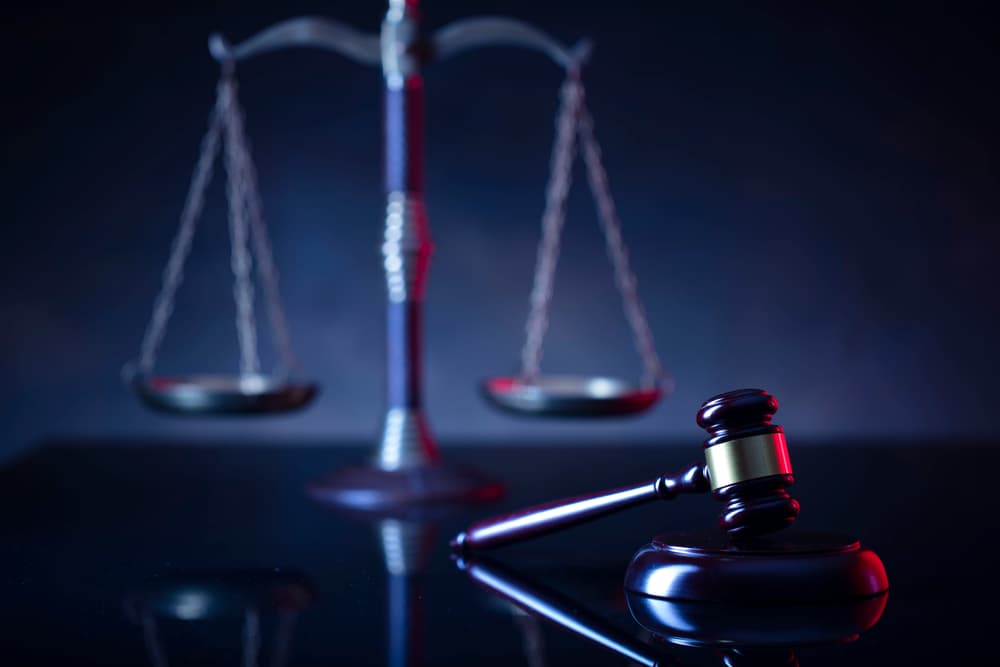If you are currently facing a criminal charge for driving under the influence of alcohol or drugs, always consult a criminal defense lawyer in your area as soon as possible. Never face these charges alone, as you might receive wrongful convictions or unnecessarily harsh penalties without DUI defense representation.
Your DUI defense lawyer can assist you during every stage of the proceedings and represent you during any court proceedings. Your lawyer can also answer all of your questions and help you obtain the best possible case result.
What Are the Legal Elements of a DUI?
Driving under the influence (DUI), a serious offense in many jurisdictions involves several legal elements that must be met for a conviction.
These legal elements are:
First, the prosecution must demonstrate that the accused individual (the defendant) was operating a motor vehicle. This typically includes cars, trucks, motorcycles, and other vehicles commonly found on roads.
Second, the prosecution must establish that the defendant was under the influence of alcohol or drugs while operating the vehicle. The prosecution establishes this through evidence such as blood alcohol concentration (BAC) tests, field sobriety tests, or witness testimony regarding the defendant’s behavior and appearance at the time of the incident.
Furthermore, the prosecution must demonstrate that the influence of alcohol or drugs impaired the defendant’s ability to operate the vehicle. This impairment can manifest in various ways, including decreased reaction time, impaired judgment, and difficulty maintaining control of the vehicle.
In addition to proving impairment, the prosecution must show that the defendant had a BAC above the legal limit. State law sets this limit, which varies depending on the jurisdiction. In many places, the legal limit is 0.08 percent, meaning that a BAC of 0.08 percent or higher is considered illegal.
Another crucial element of a DUI case is establishing that the defendant was aware of their impairment at the time of driving. This can be inferred from the circumstances surrounding the incident, such as erratic driving behavior, admissions of intoxication, or prior knowledge of the defendant’s alcohol or drug consumption.
Moreover, the prosecution must demonstrate that the defendant was driving on a public road or highway at the time of the offense. This element distinguishes DUI offenses from other alcohol-related offenses, such as public intoxication or underage drinking.
Finally, the prosecution must adhere to the procedural requirements of the law, including the proper administration of BAC tests, adherence to Miranda rights, and preservation of evidence. Failure to follow these procedures can result in the dismissal of charges or suppression of evidence.
Defending Against a DUI Charge
Legal defenses to a DUI charge can vary depending on the circumstances of the case, but the defense may employ several common strategies to challenge the prosecution’s case.

One possible defense is to contest the validity of the traffic stop or arrest. If law enforcement officers did not have reasonable suspicion to stop the defendant’s vehicle or probable cause to arrest them for DUI, any evidence obtained as a result of the illegal stop or arrest may be suppressed.
Another potential defense is to challenge the accuracy or reliability of the chemical tests used to determine the defendant’s BAC.
This can involve questioning the calibration and maintenance of Breathalyzer devices, the qualifications of the individuals administering the tests, or the chain of custody of blood or urine samples. Any errors or inconsistencies in the testing process can cast doubt on the validity of the results.
In addition, it may be possible to argue that alcohol or drugs did not cause the defendant’s impairment but rather other factors such as fatigue, illness, or medication. By presenting evidence to support an alternative explanation for the defendant’s behavior, the defense may undermine the prosecution’s case.
Furthermore, the defense may challenge the officer’s observations and conclusions regarding the defendant’s level of impairment. This can involve questioning the officer’s training and experience in detecting signs of intoxication, as well as presenting evidence to contradict the officer’s testimony.
In some cases, the defense may argue that the officer violated the defendant’s constitutional rights during the investigation or arrest.
This can include violations of the defendant’s Fourth Amendment right against unreasonable searches and seizures or the Fifth Amendment right against self-incrimination.
If law enforcement officers fail to properly advise the defendant of their rights or obtain consent for searches or tests, the evidence obtained as a result may be inadmissible in court.
The success of any defense strategy will depend on the specific facts of the case and the effectiveness of the legal arguments that the defense presents. An experienced DUI defense attorney can help defendants understand their rights and the options for challenging the charges against them.
Possible Penalties for a DUI Conviction
A DUI conviction can result in various penalties that can have serious and long-lasting consequences.
A common penalty is the suspension or revocation of the defendant’s driver’s license. This can significantly affect the defendant’s ability to drive legally, potentially leading to difficulties in getting to work, school, or other important activities.
In addition to license suspension, defendants convicted of DUI may face fines and court costs. These financial penalties can be substantial and can place a significant strain on the defendant’s finances, especially when combined with other expenses associated with the legal process.
Another potential consequence of a DUI conviction is the requirement to attend alcohol education or treatment programs. The purpose of these programs is to educate defendants about the dangers of alcohol and drug use, as well as to help them address any underlying issues that may contribute to their substance abuse.
Furthermore, the court may require defendants to perform community service as part of their sentence. Community service can involve performing unpaid work for a specified number of hours, such as picking up litter, working at a food bank, or performing other tasks as the court directs.
In some cases, the court may require defendants convicted of DUI to install an ignition interlock device (IID) in their vehicle.
An IID is a Breathalyzer that prevents the vehicle from starting if it detects alcohol on the driver’s breath. This costly and inconvenient requirement prevents future instances of drunk driving.
In addition, a DUI conviction can have collateral consequences beyond the legal penalties the court has imposed. For example, defendants may experience difficulties in obtaining or maintaining employment, securing housing, or obtaining professional licenses due to their criminal record.
Finally, repeat offenders or defendants involved in accidents resulting in injury or death may face more severe penalties, including longer license suspensions, higher fines, and potential imprisonment.
If you ultimately incur a DUI conviction, an experienced criminal defense attorney can represent you during your sentencing hearing and argue for the lightest possible penalty on your behalf.
Pleading Guilty to a DUI Versus Going to Trial
Deciding whether to plead guilty to a DUI charge or take the case to trial requires careful consideration of various factors.
When a defendant pleads guilty to a DUI, they admit to the charges against them without contesting the evidence that the prosecution presented. In exchange for the guilty plea, the defendant may receive a more lenient sentence, such as reduced fines or a shorter license suspension, than if they were convicted at trial.

Pleading guilty to a DUI can have several potential advantages. By accepting responsibility for their actions, defendants may demonstrate remorse and cooperation, which the court can view favorably.
Furthermore, pleading guilty can expedite the resolution of the case, sparing defendants the time, stress, and expense of a trial. In some cases, prosecutors may offer plea deals to defendants who plead guilty, allowing them to avoid the uncertainty of trial and achieve a more predictable outcome.
However, pleading guilty to a DUI also has its drawbacks. By forgoing a trial, defendants waive their right to challenge the evidence against them and present a defense.
This means that they may miss opportunities to challenge the legality of the traffic stop, the accuracy of chemical tests, or the reliability of witness testimony. In addition, pleading guilty to a DUI results in a criminal conviction, which can have lasting consequences, including difficulties in obtaining employment, housing, or professional licenses.
On the other hand, taking a DUI case to trial involves presenting evidence and arguments to a judge or jury in an effort to secure an acquittal. This allows defendants to contest the prosecution’s case and assert their innocence.
By going to trial, defendants maintain their right to due process and the presumption of innocence until proven guilty beyond a reasonable doubt.
However, taking a DUI case to trial also carries risks. If convicted, defendants may face harsher penalties than if they had pleaded guilty, including higher fines, longer license suspensions, and potential imprisonment. Trials can take time, cost thousands of dollars, and emotionally drain defendants and their families.
The decision to plead guilty or go to trial depends on the individual circumstances of each case, including the strength of the evidence, the likelihood of success at trial, and the potential consequences of conviction.
An experienced DUI defense attorney can help defendants make an informed decision and navigate the legal process effectively.
How Can a Lawyer Help You with Your DUI Case?
An experienced criminal defense lawyer can provide invaluable assistance to individuals facing DUI charges, offering guidance, support, and representation throughout the legal process.
One way that a defense lawyer can help is by thoroughly reviewing the evidence against the defendant and identifying potential weaknesses in the prosecution’s case.
This may involve scrutinizing the legality of the traffic stop, the administration of field sobriety tests, or the accuracy of chemical tests used to measure the defendant’s blood alcohol concentration (BAC).
Furthermore, a defense lawyer can advise defendants on their rights and options for defense, helping them make informed decisions about how to proceed with their case. This may include negotiating plea deals with prosecutors to secure favorable outcomes, such as reduced charges or sentencing concessions.
Besides that, a defense lawyer can represent defendants at all court proceedings, including arraignments, pretrial hearings, and trial proceedings. By advocating for their clients, defense lawyers can protect defendants’ rights and ensure they receive fair treatment under the law.
Moreover, defense lawyers can present evidence and arguments in support of their clients’ innocence, challenging the prosecution’s case and raising reasonable doubt in the minds of jurors. This may involve calling witnesses, cross-examining prosecution witnesses, and presenting expert testimony to support the defense’s position.
Defense lawyers can also assist defendants in dealing with the complex legal system, explaining the charges against them, advising them on potential consequences, and helping them understand their legal rights and obligations.
Furthermore, defense lawyers can provide emotional support and reassurance to defendants during what can be a stressful and overwhelming experience. By offering guidance and encouragement, defense lawyers can help defendants stay focused and positive throughout the legal process.
Finally, defense lawyers can help defendants work through the aftermath of a DUI conviction, assisting them in fulfilling any court-ordered requirements, such as attending alcohol education or treatment programs, installing ignition interlock devices, or performing community service.
Defense lawyers can also advise defendants on steps they can take to deal with the long-term consequences of a DUI conviction, such as seeking counseling, participating in support groups, or pursuing opportunities for rehabilitation and personal growth.
An experienced criminal defense lawyer in your area can provide you with the support and advocacy you need to achieve the best possible outcome in your case.
Speak to an Experienced DUI Defense Lawyer Today
If you are currently facing a DUI charge in your jurisdiction, speak with an experienced criminal defense lawyer as soon as possible.
Your criminal defense lawyer can go over potential legal defenses with you and explore your options. They can then help you obtain the best possible results in your case, either through a plea deal or a favorable result in court.







